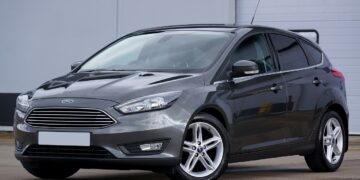When it comes to buying a new laptop, the array of choices can be overwhelming. Whether you’re a student, a professional, or simply need a device for everyday use, it’s important to choose a laptop that meets your specific needs. Here are some key features to consider when making your selection.
Performance and Processor
The processor is the heart of your laptop, determining how efficiently it runs. For general tasks like web browsing, word processing, and streaming, an Intel Core i3 or AMD Ryzen 3 processor may suffice. However, if you plan on doing more demanding tasks such as video editing, gaming, or running complex software, opt for a laptop with an Intel Core i5, i7, or AMD Ryzen 5, 7 series processor. These higher-end processors offer faster performance and better multitasking capabilities, ensuring that your laptop can handle anything you throw at it.
Memory (RAM)
Memory, or RAM, plays a critical role in your laptop’s ability to multitask. More RAM allows your laptop to handle multiple applications simultaneously without slowing down. For basic use, 8GB of RAM is generally sufficient. However, if you’re a power user who frequently uses demanding applications or runs multiple programs at once, consider a laptop with 16GB or more. This ensures smooth performance, especially when working with large files or using resource-intensive software.
Storage Type and Capacity
Storage is another important consideration when choosing a laptop. Traditional hard drives (HDD) offer more storage at a lower cost but are slower and bulkier. On the other hand, solid-state drives (SSD) are faster, more reliable, and consume less power, making them a better choice for most users. SSDs can significantly reduce boot times and improve overall system responsiveness. When it comes to capacity, 256GB is usually sufficient for most users, but if you store large amounts of data, such as videos, photos, or games, you may want to opt for 512GB or more.
Display Quality and Size
The quality of the display is crucial, especially if you spend long hours on your laptop. Look for a laptop with a high-resolution screen, ideally Full HD (1920×1080) or higher, for sharp and clear visuals. If you work with graphics, videos, or enjoy watching movies, consider a laptop with an IPS panel for better color accuracy and wider viewing angles. The size of the display also matters—smaller screens (13-14 inches) offer better portability, while larger screens (15-17 inches) provide more screen real estate, making them better for multitasking and media consumption.
Battery Life
Battery life is an essential feature, particularly if you’re on the go or work away from a power source frequently. Laptops with longer battery life allow you to work, browse, and watch without needing to recharge often. Check the manufacturer’s battery life estimates, but also consider reading user reviews, as real-world usage can vary. For most users, a laptop with a battery life of at least 8-10 hours is ideal, ensuring that it can last through a full day of work or study.
Portability and Build Quality
If you need a laptop that’s easy to carry around, portability is key. Consider the weight and thickness of the laptop, especially if you’re a frequent traveler or student. Ultrabooks and thin-and-light laptops are designed with portability in mind, often weighing less than 3 pounds and having slim profiles. Build quality is also important—look for laptops with durable materials like aluminum or magnesium alloy, which can withstand daily wear and tear better than plastic models.
Connectivity and Ports
Ensure the laptop has the necessary ports and connectivity options to support your peripherals and devices. Common ports include USB-A, USB-C, HDMI, and a headphone jack. USB-C is becoming increasingly popular for charging and data transfer, so it’s a good idea to have at least one USB-C port. Additionally, consider whether you need an SD card reader, Ethernet port, or Thunderbolt 3 for faster data transfer and connecting to external displays.
Operating System
Lastly, the operating system (OS) is an essential aspect of your laptop. Most laptops come with Windows, macOS, or Chrome OS. Windows is versatile and supports a wide range of software, making it a popular choice for many users. macOS is exclusive to Apple laptops and offers a smooth, integrated experience, particularly if you’re already in the Apple ecosystem. Chrome OS is lightweight and primarily cloud-based, making it a good choice for users who mainly use their laptops for web browsing and online tasks.
By considering these key features, you can find a laptop that suits your specific needs, ensuring that it performs well, lasts long, and provides a comfortable user experience.
















































